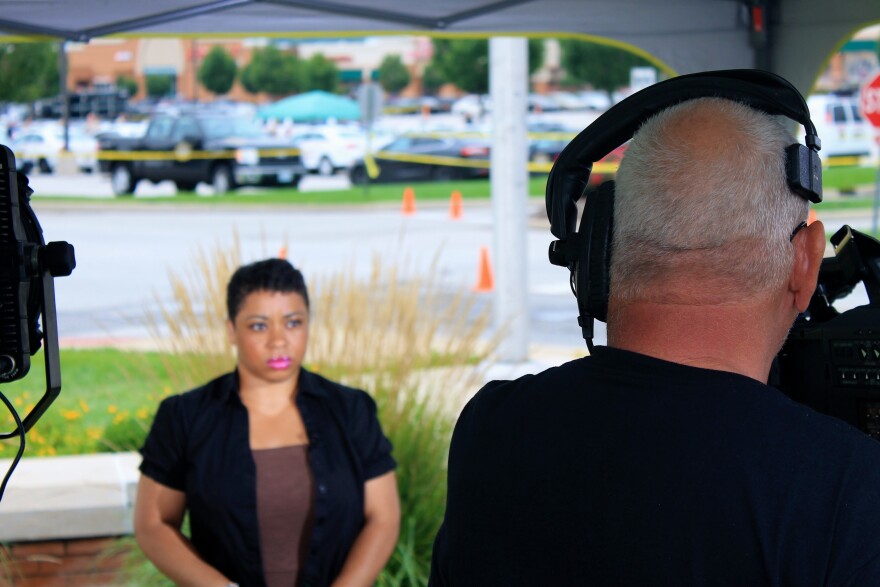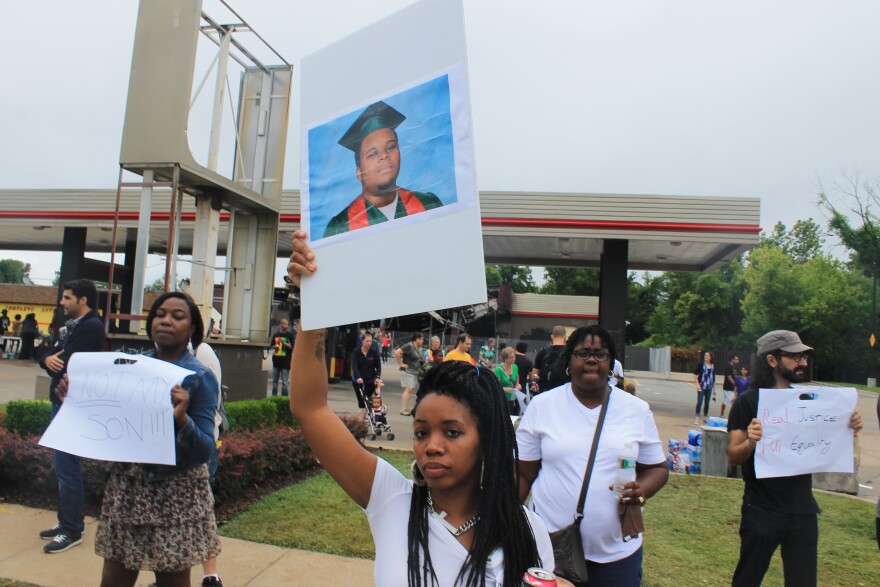As Ferguson’s municipal government continues to face nationwide scrutiny, the city’s council is preparing to make big changes to the town’s police and municipal court systems.
Proposed changes on the agenda for a Ferguson City Council meeting Tuesday night include a citizen review board for the police department and a limit on how much Ferguson will rely on fines for general revenue. Other proposed steps would make it less likely that poor people would end up in jail for violating city ordinances.
The council is set to meet at 7 p.m. Tuesday at the Greater Grace Church. It will be the council's first meeting since Ferguson Police Officer Darren Wilson shot and killed 18-year-old Michael Brown.
Brown’s death sparked days of angry – and sometimes violent – protests in parts of Ferguson. It also prompted intense examination of how the town polices itself and prosecutes people who break city laws.
The U.S. Justice Department has opened up a separate investigation looking into the city’s police force. Meanwhile, a group of St. Louis University law school professors and attorneys with the Arch City Defenders have asked the city to provide amnesty to people charged with or accused of breaking city ordinances.
In addition to the call for amnesty in Ferguson, some Republican state legislators – such as Rep. Caleb Jones, R-California – say there may be a serious effort next year to place restrictions on municipal courts. That call comes as national news organizations such as the Washington Post have detailed how low-income individuals can become trapped and harshly burdened by municipal fines.
With that as a backdrop, the city council appears to be ready to act. An agenda given to St. Louis Public Radio by a contracted public relations agency includes:
- Creating a “Citizen Review Board to work in conjunction with the Police Department.” This entity, according to the press release, would “include citizens who are not involved in local government” who will work with the city’s administration and police chief “in advising and reviewing operations and actions of the police department and will provide valuable input in improving operations.”
- Mandating that court fine revenues remain at or below 15 percent of the city’s revenue and make it so that “any excess revenue is earmarked for special community projects instead of general revenue purposes.”
- Repealing the offense of failing to appear in municipal court, and thus no longer fining or charging people with that offense.
- Removing various administrative fees, including a $50 warrant recall fee.
- Working with St. Louis County and Dellwood to improve West Florissant Avenue, the primary scene of unrest throughout August.
The press release also said the city's municipal judge is establishing "a special docket for defendants who are having trouble making monthly payments on outstanding fines." It also stated the city's municipal judge is planning to unveil "a warrant recall program."
Thomas Harvey of the Arch City Defenders told the New York Times on Monday that while the proposed changes are"not exactly what we asked for, it's a substantial step forward." A previous Arch City Defenders report criticized Ferguson and other municipalities for a pattern of fines and related legal enforcement practices that result in jail time for many. The pattern has exacerbated tensions between African Americans and police.
In a statement, Ferguson City Council member Mark Byrne said, “The overall goal of these changes is to improve trust within the community and increase transparency, particularly within Ferguson’s courts and police department.”
“We want to demonstrate to residents that we take their concerns extremely seriously,” Byrne said. “That’s why we’re initiating new changes within our local police force and in our courts.”
Boiling point?
The meeting comes after scathing criticism of both the elected and unelected leadership of Ferguson. Many have contended that the largely white city government is out of touch with the town’s population, which is about two-thirds African-American.
Some critics have been especially upset at the way Ferguson Mayor James Knowles III handled the fallout from Brown’s death. At a St. Louis Public Radio forum, speaker after speaker castigated Knowles and called for his resignation. (Knowles said he would not step aside from his position.)

Patricia Bynes, the Democratic committeewoman for Ferguson Township, told St. Louis Public Radio last week that the council should take a vote of confidence on Knowles.
“Let’s get everyone on record,” said Bynes, who lives in unincorporated St. Louis County. “Let’s first see who will take a vote of confidence and see how they really feel about his position. Before we just start running a recall, maybe if there’s a vote of no confidence he’ll see that he needs to step down.”
She added, “Let’s start getting citizens engaged with their council to voice their opinions.”
More than anything, Bynes said the city needs to “get back into the business of having these city council meetings.” A meeting in August was canceled because the city council wanted to find a bigger venue to prepare for what could be a large crowd.
She said that she hopes the fallout from the Brown shooting will prompt Ferguson residents to be more engaged with their local government.
“You take a civics class in school and they teach you about federal government,” she said. “They might teach you about state government. Nobody teaches you about what’s going on at the local level. How does government work? Because that’s where we’re going to get down to -- whether these are structural issues or does it really just come down to just holding your city council people accountable.”








